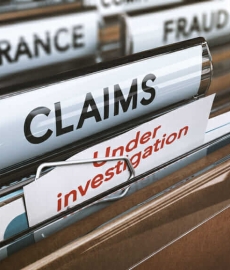Who Pays the Bills When a Hotel is Placed Under Quarantine?
Posted on April 16, 2020 | by | Posted in Insurance
With the ongoing threat of the coronavirus pandemic, the hospitality industry has found itself in a complete standstill. Hotels with guests that tested positive for COVID-19 are under lockdown and impenetrable barriers have been placed to help contain the spread of the virus. With seemingly no end to the pandemic in sight, there’s a good chance that the lockdown will be extended until the number of cases starts dropping significantly.
Hotel owners and operators are already feeling the loss of revenue. Factor in the corresponding guest costs on a daily, weekly, and monthly basis, and you have business owners who find themselves in a very difficult situation. The question is, who will pick up the tabs as a result of the pandemic? And how can hotel owners recover from such a financially devastating situation? Let’s take a look at some of the answers to find out.
Business interruption insurance coverage
For the majority of hotel owners and operators, business interruption insurance will be one of their main focal points. Most people will take out policies along with standard property damage insurance. Such policies usually cover loss of revenue resulting from business interruptions and are subject to other liability caps. However, recovery under these types of policies will mostly depend on the insured showing that the business interruption is due to physical damage or loss of property.
Some insurance products like event cancellation may appear relevant, but often these products are subject to exclusions in regards to communicable diseases. Liability policies like public liability insurances and employer’s liability will only be applicable if the insured has been negligent in following proper health and safety procedures and caused injury/harm to an employee or third party.
Some policies also have express exclusions regarding communicable or infectious diseases. This means that it’s very likely that the COVID-19 pandemic is not covered under most standard policies. In reality, most hotel owners may not have adequate coverage for the business interruptions brought about by COVID-19, which is why we recommend discussing the coverage with your insurance broker before the losses start to pile up.
Government assistance
Many industries across the globe are lobbying their governments to soften the blow of the COVID-19 pandemic through emergency assistance funds. In countries like France and Singapore, such funds are being combined with rental waivers and property tax rebates to lessen the impact of flagging demand in the hospitality industry.
Still, the pandemic is currently in its initial stages and because there’s a limit to government assistance, hotel associations in affected jurisdictions should focus on seeking priority of payout for quarantined hotels. We recommend hotel owners and operators to confirm if the emergency assistance funds will be forbidden from those who possess business interruption insurance.
Responsibility between the hotel owner and operator
If proper insurance coverage or government assistance are lacking, the costs are likely to be shouldered by either the hotel owner or the operator. It’s unlikely that a hotel operator will be directly responsible for shouldering the costs, except for when the operator provides guarantees in regards to the hotel’s performance. Typically, it’s the owner’s responsibility to foot the bill in terms of cost-related hotel operations.
The hotel management agreement should allow the costs to be incurred (even if not budgeted) and to constitute operating expenses. Such agreements often include broad language to incur expenses by the hotel operator which they deem necessary or reasonable to run the business. The coronavirus quarantine is a government directive and therefore, the hotel operator should be within their contractual obligations to incur costs due to the quarantine as operating expenses, even if the costs were not approved in the annual budget.
From a hotel operator’s point of view, it would be beneficial for the costs to be shouldered by the owner instead of the hotel’s operating expenses. But unless the government decides to stipulate a legal obligation for the hotel owner to shoulder the costs, it’s considered outside of their responsibility. It is always beneficial to understand your current position by speaking with an expert who specialises in hotel insurance throughout Australia.
Guest responsibility
In some jurisdictions, especially those that lack customer protection legislation, the hotel guests are likely to pay for the costs as a result of the quarantine. However, the hotel owner and operator may assume responsibility in light of reputational repercussions for asking guests for payments due to a government-imposed quarantine. Any hotel guest that finds themselves under hotel quarantine should check their booking terms, whether directly or through a travel agent, to clarify future costs as the lockdown progresses.











